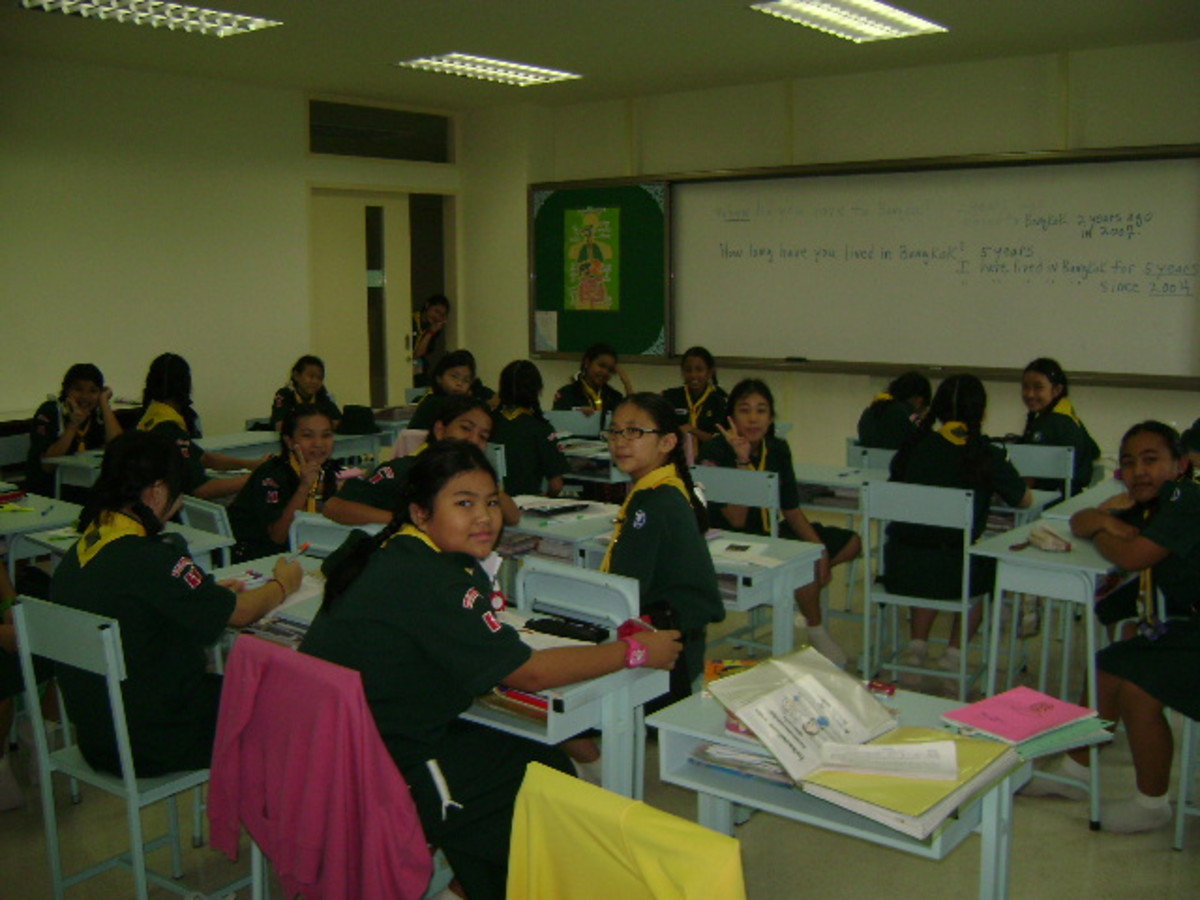Teen Talk: This Teacher Hates Me...
Teen Talk - Live
Chris is taking “Teen Talk” on the road. If you are a member of a parent group or responsible for finding engaging speakers for student or youth groups, please contact Chris at www.chrislincoln-speaker.com

This Teacher Hates Me...
Hot on the heels of last week’s hub “This Girl at School Hates Me…” comes the second most common teen complaint, “This Teacher Hates Me…”
Much of the advice remains the same. Listen carefully, be the sounding board your child needs, don’t overtly side with your child (or the teacher) and don’t leap into, “I’ll go down there and sort this out,” mode.
The information you are receiving is passing through a very special filter – a middle school child – complete with their sense of injustice, and their egocentric worldview, along with their emotional teeter-totter mentality.
I have been a middle school teacher and administrator for many years and am married to a sixth grade math and science teacher. The first thing to get into the open is that it is incredibly rare that a teacher seriously dislikes a student.
Feeling frustrated and irritated are the two most common negative emotions reported by teachers. Interacting with, between seventy and ninety, (or more) children a day, will certainly highlight those feelings at times, but hate? It is too strong an emotion, and something that, in twenty or more years, I have never witnessed. I have come across disappointment, sadness, even fear, but never hatred.
The teen puts a very different value on the word hate than an adult would. Like a two year old finding the power of the magic “no” word, hate is extended to mean everything in the realm of “not good”. Love is used just as expansively, leaving “I don’t know” to cover the middle ground. For children this age there are no shades of gray. Everything is either loved or hated, with anything not already filed into those categories, such as; “maybe”, “boring”, “stupid”, “don’t know”, and “don’t care”, in limbo, awaiting later categorization.
So, “This Teacher Hates Me…” means your child is upset with the actions, words or demeanor of a particular teacher. It may be a tiny issue. For example, “She gave me a zero for not turning in my homework,” when that’s a clear class/school/district rule. It could be a bigger issue that may warrant your intervention. Either way, hear your child out.
Middle school is a very difficult transition for many students. Going from a self-enclosed classroom with one teacher, to moving between rooms and multiple teachers, and can be a significant challenge. The chances of your “stuff” being somewhere nearby in a self-enclosed classroom, are high. There is flexibility, both for the student and the teacher, and that is missing in the more time-regimented structure of most middle schools.
This makes the Teacher, in the eyes of the student, less accessible, and by extrapolation (and comparison with elementary years) remote, unfeeling, and uncaring. This would come as a surprise to most of the teachers, who regularly offer their very precious non-teaching time (recess, before and after school, lunch and those, oh so needed, planning periods) to the students, (who then don’t use them.) The disconnect lies in the structure being different, but some students quickly figure out how the system works, and from Christmas onwards, start to take advantage of the teacher’s offer of help.
You can imagine the delicate balancing act that middle school teachers have to do. The single hardest lesson in middle school is not a particular subject, but the development of personal responsibility. Some students take to it like ducks to water. They revel in their growing self-determination, enjoying the ability to demonstrate their independence and their skill at being a student. Others are simply lost. If they have been used to someone else doing all the organizing and keeping it together, they lack the skill set to step up to a more independent role.
Parents, older siblings, and some elementary teachers, unwittingly enable this behavior. It is a real handicap that we tend to see more with boys than girls. It makes middle school many times harder than it need be, but there is no option, they have to learn to stand on their own two feet.
Meanwhile, they see the issue, not of their own making, but the teacher’s fault. Some key facts;
- Homework is not optional.
- Learning is not over just because you have gone home.
- Work has to actually be turned in to receive a grade.
- Work has to be identified to receive a grade. (Your name must be on it.)
- Thinking you turned it in does not equal turned in. (Check the backpack)
- It actually takes many hours for work to be graded (don’t expect the grade to be posted ten minutes after you, belatedly, turn it in)
- The stuff written in red by the teacher is meant to read, they are clues to help you improve.
- “At home”, or “in my locker” is not “with you”. Be prepared for class.
- The best way to earn respect is to show respect.
- Oh and the big shocker. Teachers talk to each other, and your parents.
None of these things mean your teacher does not like you. They need you to learn these key management components as quickly as possible. It allows your teacher to be more efficient, and have more time for the more important issues that may arise.
Now, if your child is doing the above, but still feels that they are not being successful, it is important to find the root of the issue. After listening carefully I would suggest contacting the teacher, to get their perspective. Email is the easiest way to communicate, but be careful not to sound accusatory or angry. The two of you need to work in unison to best assist your child. Email is a hard medium to express nuanced or subtle concerns, so write it and have a friend or partner read it first to see if your point is well made. Teachers have a tough time returning phone calls, and meetings are notoriously difficult to schedule (especially if you are working), thus my emphasis on a careful email communication.
In this manner, hundreds of instances of a child needing glasses, having attention issues, or hearing impediments, have been uncovered. Very often the child has a difficult time trying to express their concern or issue. They may be aware that something is wrong, but lack the vocabulary, or simply have no point of reference, and so, cannot explain what they need.
In concert with the teacher(s), you can be a wonderful advocate for your child. Good communication, and a joint goal of guiding a child to independence, will minimize the reports of “This Teacher hates me…”
Looking forward to next week, the even more personal, “I Hate You…”








